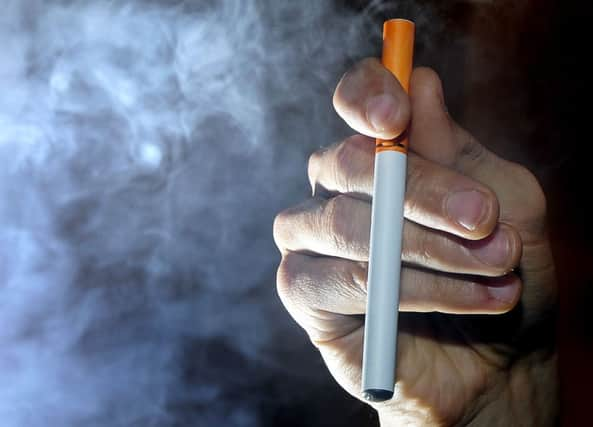Leaders: NHS must read smoke signals on health


So, it seems perfectly obvious that we should do all we can to ensure those who do smoke are given the help they need to stop, and those who have not yet started are not tempted to do so.
Scotland has taken some significant steps in this regard in recent years. The ban on smoking in public places is considered one of the most important pieces of public health legislation passed by Holyrood, and a more recent law preventing the display of tobacco in larger shops is designed not only to prevent eye-catching advertising but to make smoking seem less acceptable.
Advertisement
Hide AdAdvertisement
Hide AdBut with 13,000 deaths – and a further 56,000 hospital admissions – blamed on smoking each year, there is still a great deal more to be done.
In recent years, many smokers have reported that electronic cigarettes have helped them quit. An initial selling point for e-cigarettes was that they could be used anywhere. As the nicotine inside is delivered through vapour rather than smoke, it seemed clear that the product did not fall foul of the law against lighting-up in public spaces.
But a number of businesses – including shops and bars – have since introduced their own bans, and some health campaigners want to see the law against smoking in public widened to include e-cigarettes.
Among the arguments campaigners cite is that the use of e-cigarettes might lead to the use of the real thing, and that children seeing might be influenced to try.
These arguments deserve due consideration but it is impossible to ignore the positives of these products. Yes, we might prefer that people were not addicted to nicotine but better, surely, that they satisfy their cravings without taking years off their lives with 20 coffin nails a day.
The NHS is sending an unfortunate mixed message on the use of e-cigarettes. While some in the health service have recommended the devices as a helpful smoking cessation device, boards are now acting to ban them on hospital grounds, as part of a wider ban on smoking.
E-cigarettes will soon be officially regulated as either recreational or medical products. If it is decided they are indeed medical products, then the health boards’ bans may be unsustainable.
Smoking devastates lives and costs the health service billions. We all have an interest in helping people stop.
Advertisement
Hide AdAdvertisement
Hide AdIt would help, therefore, if the NHS would decide a coherent position on e-cigarettes. At the moment, depending on who is speaking, they are either valuable weapons in the fight against cigarette use, or dangerous devices that encourage smoking.
It would be a mistake not to fully explore their potential benefits. And to do that the public needs a clear message on their use.
No mean performance
GLASGOW has not always enjoyed the greatest reputation abroad. Scots may know it as a vibrant, friendly city, but others’ perceptions have often differed.
For years, Glasgow suffered from the “No Mean City” reputation, seen from outside as violent and dangerous. More recently, Scotland’s largest city has too often been cited for the depressingly poor health records of many of its citizens.
But as the 2014 Commonwealth Games continue to be the most remarkable success, the world is looking upon Glasgow anew. Even when the weather briefly took a turn for the more familiar, Glasgow continued to shine. The facilities and stadiums have been hailed by athletes as among the best they have ever used and the volunteer “Clydesiders” have created a (generally) smooth running and (always) friendly event.
And through it all, the city – with a mix of opulent Victorian architecture and sharply modern set-pieces – has never looked more beautiful or radiated more confidence.
Yesterday, Team Scotland broke its own medal record with a silver in shooting, surpassing the benchmark set in Edinburgh in 1986.
And there are days yet to come when Scotland’s athletes will surely add to that number.
Advertisement
Hide AdAdvertisement
Hide AdThere are important matters of legacy surrounding these Games. Once events come to an end on Sunday, there will be work to do, from following up business opportunities to trying to ensure that more young Scots engage with sport.
But as important as these tangible things is the sheer pleasure Glasgow 2014 has brought to us all.